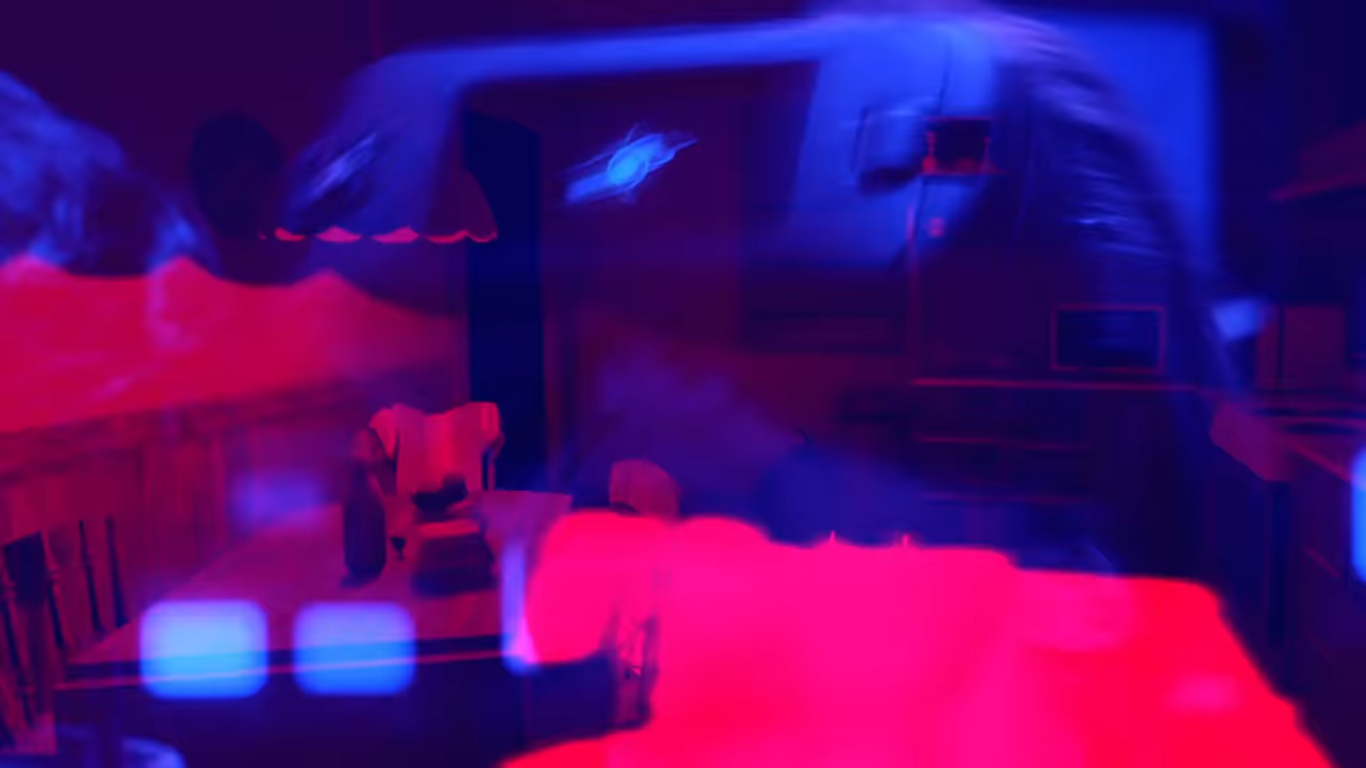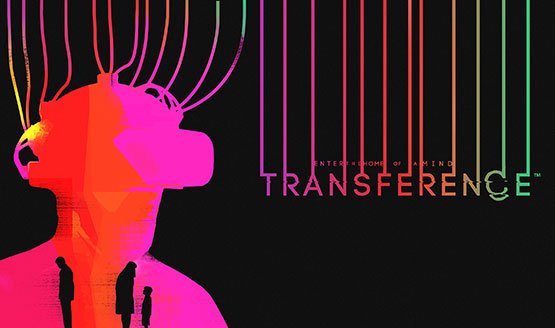Transference, the first video game from Elijah Wood’s (yes, Frodo from Lord of the Rings) film company SpectreVision, is one of the most interesting virtual reality games I’ve played. In it, the player serves as a test subject that is participating in a new technology that allows them to experience the traumatic events of others. This is done by putting on a headset, much like their real life counterpart, and then exploring these memories.
Addressing the elephant in the room when playing virtual reality—that what the player is experiencing is not real—is always an interesting dilemma. In obvious downside is that it can break the immersion of the player. I don’t feel like that’s the case here, as the in-game explanation ends up making the plot all the more intriguing. Transference isn’t about recreating traumatic events, but piecing together what happened.
In the demo I played, it was up to me to explore the house of a man named Walter. These moments of wandering hallways give Transference a lot in common with games like Gone Home and What Remains of Edith Finch, as I was simply observing the rooms I had access to. I couldn’t pick up most of the objects in each room, but those that I could interact with had a feint glow to them, one that gave an impression that the simulation I was in was starting to glitch out.
All it took was one flick of a light switch for me to discover one of the game’s biggest mechanics, which is time travel. I went from seeing the house in 2002, complete with the television featuring George W. Bush talking about the Iraq War, to being in the same house in the early 90s.
After figuring out that there was more to the house than I had initially thought, it was time to solve the game’s first puzzle. This was done by grabbing the set of basement keys in one time period, then using them to open a locked door in the other one. It was an easy puzzle to figure out, but it showed that there was a lot of promise in the mechanic. Other games, like Day of the Tentacle, have used similar ideas, so there could be some really satisfying puzzles in the main game.
I really didn’t know what to expect when I unlocked the basement door, as I could hear Walter’s teenage son going on a rant. After I finished going down the stairs, I was greeted by the boy with a shotgun in hand, as he ended up shooting me in the face with it. This was a jarring moment, and the way that he teleported right in front of my face made me jerk back in my seat.

I ended up finding a way to explore the basement, all while hearing voices in the household. As I continued piecing together the events, the simulation seemingly became more distorted. The once clear looking house became more difficult to explore, and it ended up with me being in a fully glitched out room while finding out more about how Walter coped with life after serving in the military. This involved plenty of alcohol, and taking frustrations out on his family, something that struck a chord with me.
Transference is dealing with a lot of mental health issues in a very unique way. I could see this going very poorly for a team with less talented writers, but what I’ve seen gave the topic at hand the proper respect. It’s all shaping up to be one of virtual reality’s most interesting, and unsettling, games.
Transference is set to release in Spring 2018 for PlayStation VR and PlayStation 4. Previewed on an Oculus Rift.








